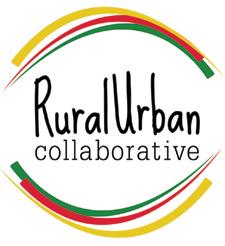
Rural/Urban Collaborative

The Rural-Urban Collaborative began as an idea in the Spring of 2007. The goal was to bring rural and urban communities together under one mission: prepare pre-service teachers to teach anywhere. The RUC seeks to integrate teacher preparation with schools, communities, and their leaders.
As the landscape of teaching is ever-changing, we believe it is our duty to prepare students and help foster a deeper awareness of how to examine, understand and assess a variety of cultural experiences and issues based on gender, race, social class, and geographic locality.
How will the RUC help me become a better-prepared teacher?
- The RUC seeks to help you acquire meaningful critical thinking skills through cultural immersion and critical classroom dialogue based on a solid foundation of cultural knowledge.
- It offers an exciting opportunity for all sophomores and juniors in the Department of Teacher Education to complete a field experience in an urban school setting.
- An important benefit of the RUC is that you are able to list on your vita that you have had a field experience in a diverse urban classroom setting.
The Rural-Urban Collaborative (RUC) seeks to:
- Foster a deeper awareness of how to examine, understand and assess cultural experiences.
- Develop an understanding of the complexities that exist in issues of culture, whether based on race, gender, locality (urban, rural, and suburban) or class, for example.
- Develop an understanding that cultures may work well for the groups living within them.
- Identify positive components of rural and urban experiences with opportunities to expand knowledge and understanding of each other and of the cultural settings connected to students in rural and urban environments.
- Identify challenges associated with school, schooling, and communities associated with the rural and urban experience.
- Offer a variety of cultural immersion experiences that promote personal growth in these areas.
- Question stereotypes and see both the positives and the challenges that exist in all cultural settings.
- Broaden dispositions and provide information and experiences that will enhance awareness of the need for change in behavior.
- Offer strategies that facilitate problem-solving cultural issues and experiences.
- Offer strategies on how to make sense of working with another culture.
- Value and promote critical thinking about rural and urban settings.
- Utilize rural and urban settings to teach critical thinking skills.
- Generate opinion leaders who have a solid foundation of cultural knowledge.
For more information, please contact:
Melinda Rutherford
RUC Coordinator
Patton College of Education
Patton Hall 218
740.593.0775